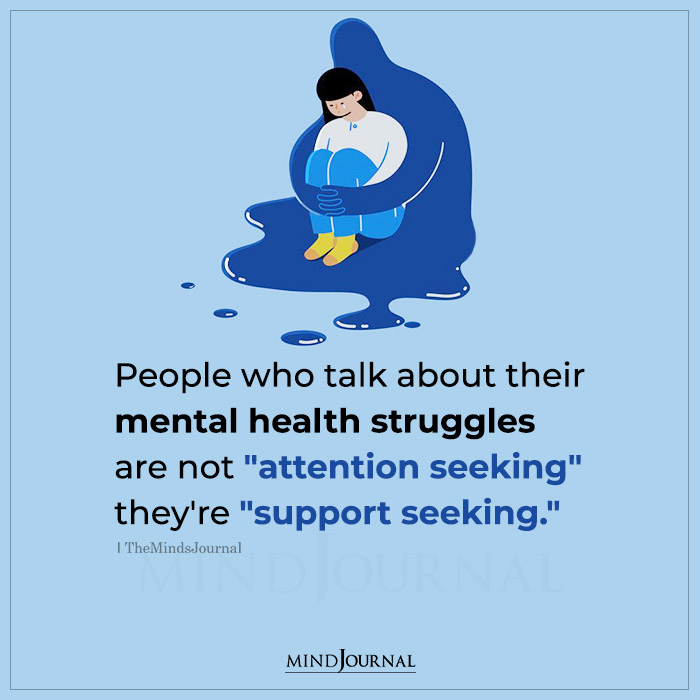The ongoing crisis situation is hard for many, but it is harder for some than the rest. Anyone who is going through this phase wants support from family and friends more than anything. Here’s are the tips on how you can support someone who is finding it difficult to keep it together in difficult times.
With the whole world in a chaotic and fearful situation right now with the ongoing pandemic, it has become more important now that everyone puts their mental health first. The present lockdown has been difficult for everyone, but it has been extra tough for many people.
The idea of an invisible virus claiming thousands of lives is taking a toll on a major portion of the population. It is imperative to support someone who is struggling with their mental health and work towards making them feel better about everything.
People who live alone away from their families or people who live in abusive households are taking this quarantine harder than other people who are not in the same situations. It is particularly important to provide support and positivity to people who are stuck in such undesirable and mentally taxing circumstances.

If you are wondering how you can do that, then read on for some useful pointers.
Here Are 4 Things You Can Do To Support Someone And Help Them With Their Mental Health
1. Approach them very delicately.
If you feel that someone is struggling with their mental health, and you want to help, then you have to know exactly how to broach the topic. Not everyone feels comfortable talking about the hard things they go through, and that is why it is important for you to understand what to do and how to make them open up to you.
Mental health is an extremely sensitive and personal thing to talk about, and asking someone point-blank to talk about theirs is never a good idea.
Start off with a generic or neutral topic, and talk normally without making them feel that it is an intervention or an interrogation. Once you feel that they are feeling comfortable enough with you, gently bring up the question about how they are feeling. If they give you a generic reply like “I feel fine, thank you for asking.”, then ask them a second time. Chances are they will open up if probed sincerely.
Always keep an open mind when you are talking to someone who is going through a hard with their mental health. The moment they feel that they are being judged or pitied, they will immediately close up and go back to dealing with it on their own. Having an open mind and heart is imperative if you want to make someone feel better.
Read 4 Strategies That Will Make Coping With Coronavirus Stress Easier
2. Know what they need to feel better.
When you want to support someone with their mental health, keep one crucial thing in mind – it is not always about giving good advice or solving the problem; sometimes it is enough to just be there for them and listen to what they have to say. Simply listening is sometimes one of the best things you can do for someone when they are having a tough time with their mental health.
Mental health issues can be a complex thing to deal with sometimes, and one bad move can make someone spiral. So, when you are trying to make things better for someone in this aspect, do so selflessly and without making them feel like they are overreacting. Most of the time, people tend to regard mental health issues as a sign of weakness and “being too emotional”, and that is honestly two of the worst things you can do.
So, if you genuinely want to help support someone, try to understand what they are going through and what they actually need, instead of what you think they need.
3. Try to help with the logical things.
If someone has shared with you their mental health struggles in the past, then one of the best things you can do for them is to help them look at this in a practical way. You can ask them whether they have talked to their therapist recently, or have they been taking their medications. Another thing that you can do for them if they are unable to go out, is by getting their medications, groceries, and essentials from the store. This helps them destress a bit, and makes them feel protected and taken care of.
Take them out for a short walk (within their vicinity, of course), as some fresh air and a change of scenery will help them feel better and calmer. Enquire whether they have been eating properly or not and if not, then help them by cooking some comfort food for them.
One of the best things that you can do for someone who is having a hard time with their mental health right now, is making them feel safe, secure, and not alone, as most of the time the small things can push people over the edge.
Read 8 Tips to Help Senior Citizens Suffering from Mental Health Problems
4. Show kindness as much as you can.
Kindness is an extremely underrated virtue in today’s modern world. Most people don’t realize that a simple act of kindness can go a long way in making major changes. So, if you want to support someone with their mental health struggles, then try to show as much kindness as possible.
Thoughtful gestures and random acts of kindness can help them deal with their problems in a positive and better manner.
If they are missing having their favorite food, then try and cook up a storm for them. If they are having a lockdown birthday, then try to come up with creative ways of making it a blast. If they are feeling very down and depressed, then try to do what you know will make them happy.
If you are not able to meet them, sending over flowers or a cake can do wonders, trust me. As long as they feel that they are not alone in this, they will be able to deal with everything a little bit better.
Read 15 Random Acts Of Kindness You Can Do While Social Distancing
This pandemic and the ensuing worldwide lockdown were completely unprecedented and took everyone by shock. Lives changed overnight, so it is very natural for people to feel worried, anxious, and depressed, especially those who have struggled with mental health issues for years. Showing support for someone having a hard time with all this can help them deal with everything better. And you never know, you might end up saving lives.










Leave a Reply
You must be logged in to post a comment.